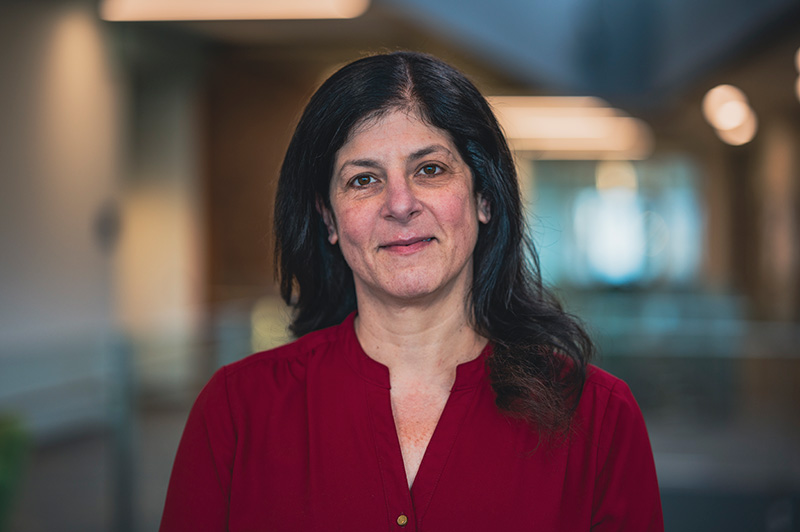
Debra Wetcher-Hendricks grew up in the Lehigh Valley, earned her MA and PhD at Lehigh University, and is a professor of sociology at Moravian.
“I spent my childhood in the Lehigh Valley, so Moravian was always on my radar,” she says. “I remember being impressed, as a child, with the big old building (which I didn’t know at the time was Comenius Hall) on Main Street, as well as periodically visiting campus for events and to do research in the library as a high school student. In fourth grade, one of our social studies units focused on the development of Bethlehem, including figures such as the Zinzendorf family and the historic buildings on South Campus. So, with respect to the university’s history, I had a somewhat smaller learning curve than most new faculty did when I began teaching at Moravian. Plus, I already knew about many of the fun things to do in the area, like strolling around Musikfest and getting ice cream at The Cup.”
What drew you to your academic discipline?
It was a fortunate accident. As an undergraduate majoring in communications with a specialization in journalism, I never imagined that I would end up teaching sociology at the college level. My plan to obtain a master’s degree in social relations seemed to follow logically from a BA in communications. Then, everything changed when I enrolled in a basic graduate-level statistics course, which was recommended for those in my program. I hated math as a child, but realized in graduate school that within the context of topics that interest me (e.g., social science), it’s not so bad. I ended up continuing my graduate education and receiving my doctorate in applied social research, with my doctoral dissertation focusing upon a very specific statistical procedure called the correction for attenuation. Even though I teach in the sociology and anthropology department, I use my background in quantitative data analysis regularly, especially when I teach advanced research in sociology. Students are often surprised to learn that sociology can involve math, and some panic a bit when they come to that realization, so it’s interesting—and rewarding—to watch those attitudes change as we progress through the course.
What are your research interests, and why are you drawn to them?
Although it seems redundant, my primary research interest is research. I received my doctorate in applied social research, which involves the methodology of conceptualizing, conducting, and analyzing results of research. I specialize in quantitative data analysis, which uses statistics. So, my research focuses upon evaluating existing statistical procedures, and sometimes developing new ones. It also provides me with opportunities to learn about other disciplines because individuals from various departments and community agencies have contacted me to ask for guidance when they don’t know what to do with data they’ve collected.
Share something about yourself that people may not know.
I can’t whistle. People have tried to teach me, and I’ve tried to teach myself, never with any success. Sometimes I can get a pathetic-sounding squeak, but that’s it. In elementary school, my class was singing in an assembly, and the teacher wanted us to whistle a verse in one of the songs. I remember being so scared that I would get into trouble for not whistling.
What is your favorite space on campus?
Oddly, my favorite space is my office. Tucked in a corner of PPHAC, it often offers a quiet escape from everyday chaos. I also appreciate the camaraderie and support of my phenomenal departmental colleagues, whose offices surround mine. They definitely contribute to the sense of comfort I feel in and around my office. Honorable mention, though, goes to the many beautiful outdoor spaces on campus where I can sit and do my work on a nice day.
What do you like to do with your free time?
Since I became a parent (a long time ago), free time has been at a minimum. Most of my nonwork activities have involved my sons’ sporting events and theatrical performances. But aside from that, I’ve always liked spending time at the beach. I don’t even need to go into the water (although I enjoy that too). Just being there is enough.
I can never resist a good _____.
Pile of cheese fries.
What is the best advice you have ever received or a quote that stays with you?
Vaudeville performer, radio personality, and humorist Will Rogers once said, “Even if you’re on the right track, you’ll get run over if you just sit there.” I’ve posted this quote in my office because it’s sort of lighthearted but also very, very true!